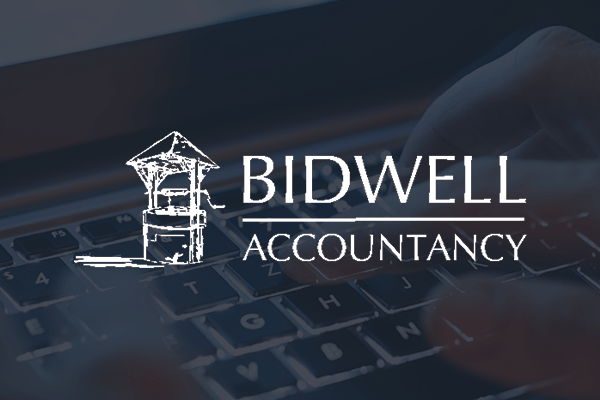January Newsletter

Welcome to the January newsletter of 2023 and we wish you all the very best for the year ahead. We’re here for more than just your numbers - we are able to help you as you navigate your business through the year ahead so please let us know if we can help.
Content this month includes a reminder that the super-deduction incentive for companies is closing in March - if you’re thinking of taking advantage of it and need some help, do get in touch - it’s an important tax saving opportunity if you need to invest in plant and machinery. You can find out the interesting outcomes of a government meeting held to discuss help for people struggling to pay their mortgage in light of continuing inflation. We have an update on vehicle benefits charges, a reminder about self-assessment (and all of the associated fines if you file or pay late) and information on the 2023 Spring Budget. As always, we finish with some financial dates for your diary.
Super-deductions finish March 2023
Time is running out to claim the super-deduction offering 130% first-year tax relief. The deduction is available to companies until March 2023. The super-deduction was designed to help incorporated businesses finance expansion after the coronavirus pandemic and to help drive growth.
The super-deduction tax break was introduced on 1 April 2021 and allows businesses to deduct 130% of the cost of any qualifying investment on most new plant and equipment investments that would ordinarily qualify for 18% main rate writing down allowances. This means that for every £1 businesses invest, they can reduce their tax bill by up to 25p. The temporary tax relief applies on qualifying capital asset investments until 31 March 2023.
In addition, an enhanced first year allowance of 50% on qualifying special rate assets also applies to expenditure within the same period. This includes most new plant and machinery investments that would ordinarily qualify for 6% special rate writing down allowances.
The super-deduction can only be claimed by companies. This means that self-employed traders are unable to benefit. However, they could benefit from the Annual Investment Allowance (AIA) for investments of up to £1 million. The AIA allows for a 100% tax deduction on qualifying expenditure on plant and machinery.
The temporary limit of £1 million will also remain in place until 31 March 2023 before reverting to the usual £200,000 limit.
Mortgage payment support
The Chancellor, Jeremy Hunt, recently hosted a meeting at 11 Downing Street to discuss what help may be available to support homeowners who encounter problems paying their mortgage. The meeting was attended by leaders of the UK’s major mortgage lenders, the Chair of the Financial Conduct Authority (FCA), and Martin Lewis of Money Saving Expert. The meeting was convened in light of the increase in interest rates over the last year coupled with rising inflation.
At the meeting, mortgage lenders committed to help all their customers by:
- enabling customers who are up to date with payments to switch to a new competitive, mortgage deal without another affordability test;
- providing well-timed information to help customers plan ahead should their current rate be due to end;
- offering tailored support to those who start to struggle with payments, which may vary by lender, but may include extending the term of the mortgage to make monthly payments lower, a short-term reduction in monthly payments or accepting interest-only payments for a period where appropriate; and
- ensuring highly trained and experienced staff are on hand to help where needed.
The government also confirmed that they would take action to make Support for Mortgage Interest easier to access and increased funding for the Money and Pensions Service to provide debt advice in England.
The FCA in turn published a consultation on draft guidance clarifying how lenders can support borrowers impacted by the rising cost of living and will also publish more information for borrowers struggling to make their monthly mortgage payment.
Vehicle benefit charges from April 2023
The vehicle benefit charges for 2023-24 have been announced. Where employees are provided with fuel for their own private use by their employers, the car fuel benefit charge is also applicable. The fuel benefit charge is determined by reference to the CO2 rating of the car, applied to a fixed amount. The car fuel benefit charge will increase in 2023-24 to £27,800 (from £25,300). The fuel benefit is not applicable when the employee pays for all their private fuel use.
The standard benefit charge for private use of a company van will increase to £3,960 (from £3,600). A company van is defined as ‘a van made available to an employee by reason of their employment’. There is an additional van fuel benefit charge for a van with significant private use. The limit will increase in 2023-24 to £757 (from £688). If private use of the van is insignificant, then no benefit will apply.
Since 6 April 2021, the van benefit charge has been reduced to zero for vans that produce zero carbon emissions. This measure supports the governments climate change agenda by encouraging the uptake up of vans that emit zero carbon emissions.
Are you ready for 31 January 2023?
There are now less than 50 days to file your 2021-22 Self-Assessment tax return. Last year over 12.5 million taxpayers were required to complete a Self-Assessment tax return but over 2.3 million taxpayers missed the 31 January deadline.
The deadline for submitting your 2021-22 Self-Assessment tax returns online is 31 January 2023. You should also be aware that payment of any tax due should also be made by this date. This includes the payment of any balance of Self-Assessment liability for the 2021-22 plus the first payment on account due for the current 2022-23 tax year.
If you miss the filing deadline you will usually be charged a £100 fixed penalty which applies even if there is no tax to pay or if the tax due is paid on time. If you do not file and pay before 1 May 2023 then you will face additional daily penalties of £10 per day, up to a maximum of £900. If the return still remains outstanding further higher penalties will be charged after six months and again after twelve months from the filing date. There are also additional penalties for paying late that amount to 5% of the tax unpaid at 30 days, 6 months and 12 months.
If you had tax underpayments in the 2021-22 tax year you have until 30 December 2022 to file your online Self-Assessment returns in order to have the monies collected in the 2023-24 tax year starting on 6 April 2023.
We would encourage you to complete your tax return as early as possible as the filing date looms. If you are filing online for the first time you should ensure you register to use HMRC’s Self-Assessment online service. Once registered an activation code will be sent by mail. This process can take up to 10 working days.
Budget date 2023 announced
The Chancellor of the Exchequer, Jeremy Hunt has confirmed, in a written statement, that the next UK Budget will take place on Wednesday, 15 March 2023. This will technically be the Chancellor’s first Budget although his Autumn Statement to the House of Commons on 17 November 2022 included many announcements more typically seen in a traditional Budget.
This means there have already been a raft of changes announced for 2023-24, so it will be interesting to see what further changes are announced as part of the Budget next Spring.
Details of all the Budget announcements will be made on a special section of the GOV.UK website which will be updated following completion of the Chancellor’s speech next March.
The Budget will be published alongside the latest forecasts from the Office for Budget Responsibility (OBR). This forecast will be in addition to that published for the Autumn Statement and fulfil the obligation for the OBR to produce at least two forecasts in a financial year, as is required by legislation.
The OBR has executive responsibility for producing the official UK economic and fiscal forecasts, evaluating the government’s performance against its fiscal targets, assessing the sustainability of and risks to the public finances and scrutinising government tax and welfare spending.
Tax Diary January/February 2023
1 January 2023 - Due date for Corporation Tax due for the year ended 31 March 2022.
19 January 2023 - PAYE and NIC deductions due for month ended 5 January 2023. (If you pay your tax electronically the due date is 22 January 2023).
19 January 2023 - Filing deadline for the CIS300 monthly return for the month ended 5 January 2023.
19 January 2023 - CIS tax deducted for the month ended 5 January 2023 is payable by today.
31 January 2023 - Last day to file 2021-22 self-assessment tax returns online.
31 January 2023 - Balance of self-assessment tax owing for 2021-22 due to be settled on or before today unless you have elected to extend this deadline by formal agreement with HMRC. Also due is any first payment on account for 2022-23.
1 February 2023 - Due date for corporation tax payable for the year ended 30 April 2022.
19 February 2023 - PAYE and NIC deductions due for month ended 5 February 2023. (If you pay your tax electronically the due date is 22 February 2023)
19 February 2023 - Filing deadline for the CIS300 monthly return for the month ended 5 February 2023.
19 February 2023 - CIS tax deducted for the month ended 5 February 2023 is payable by today.

Unit 157, Milton Keynes Business Centre,
Foxhunter Drive, Milton Keynes,
Buckinghamshire, MK14 6GD
Bidwell Accountancy




